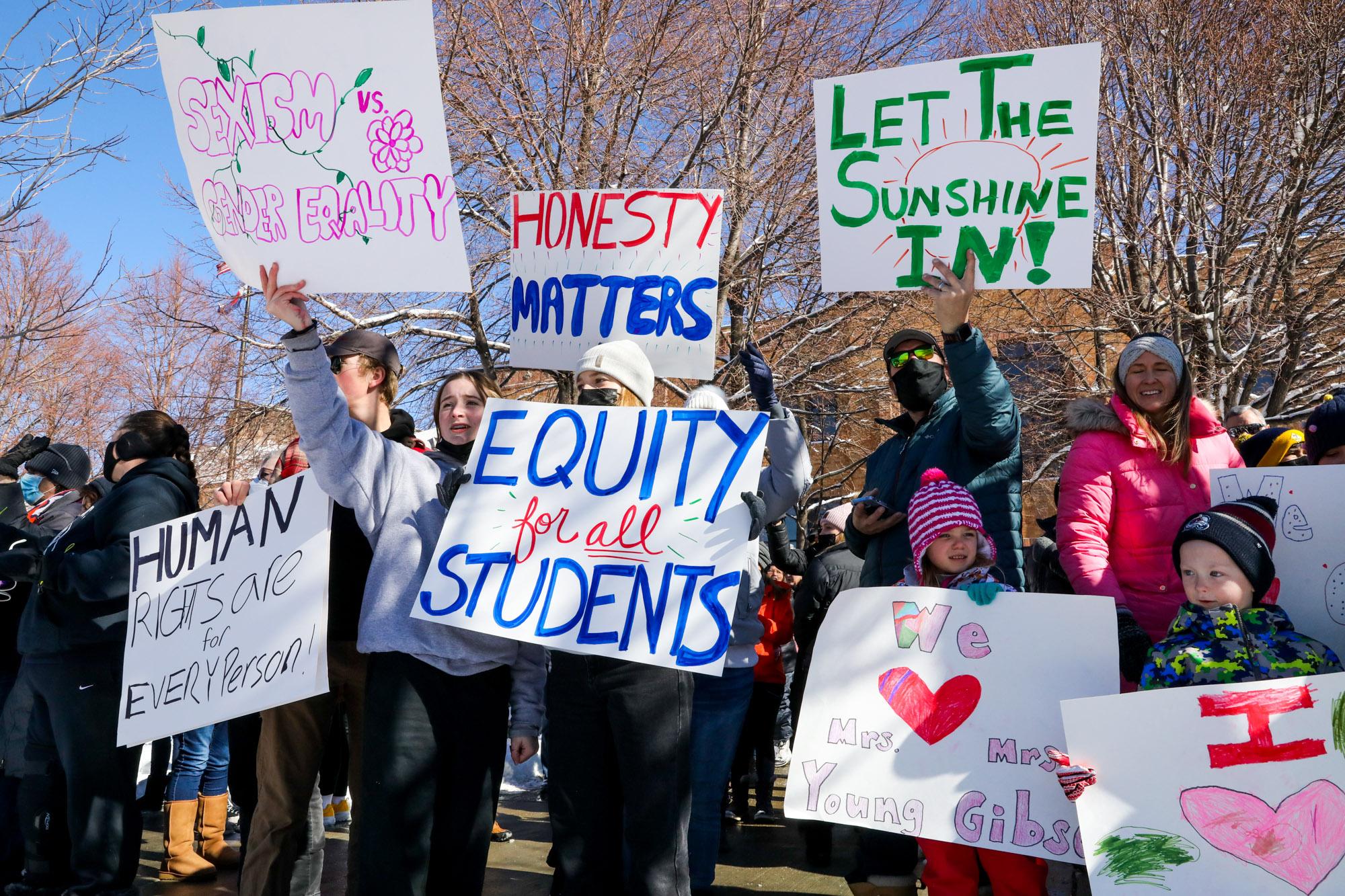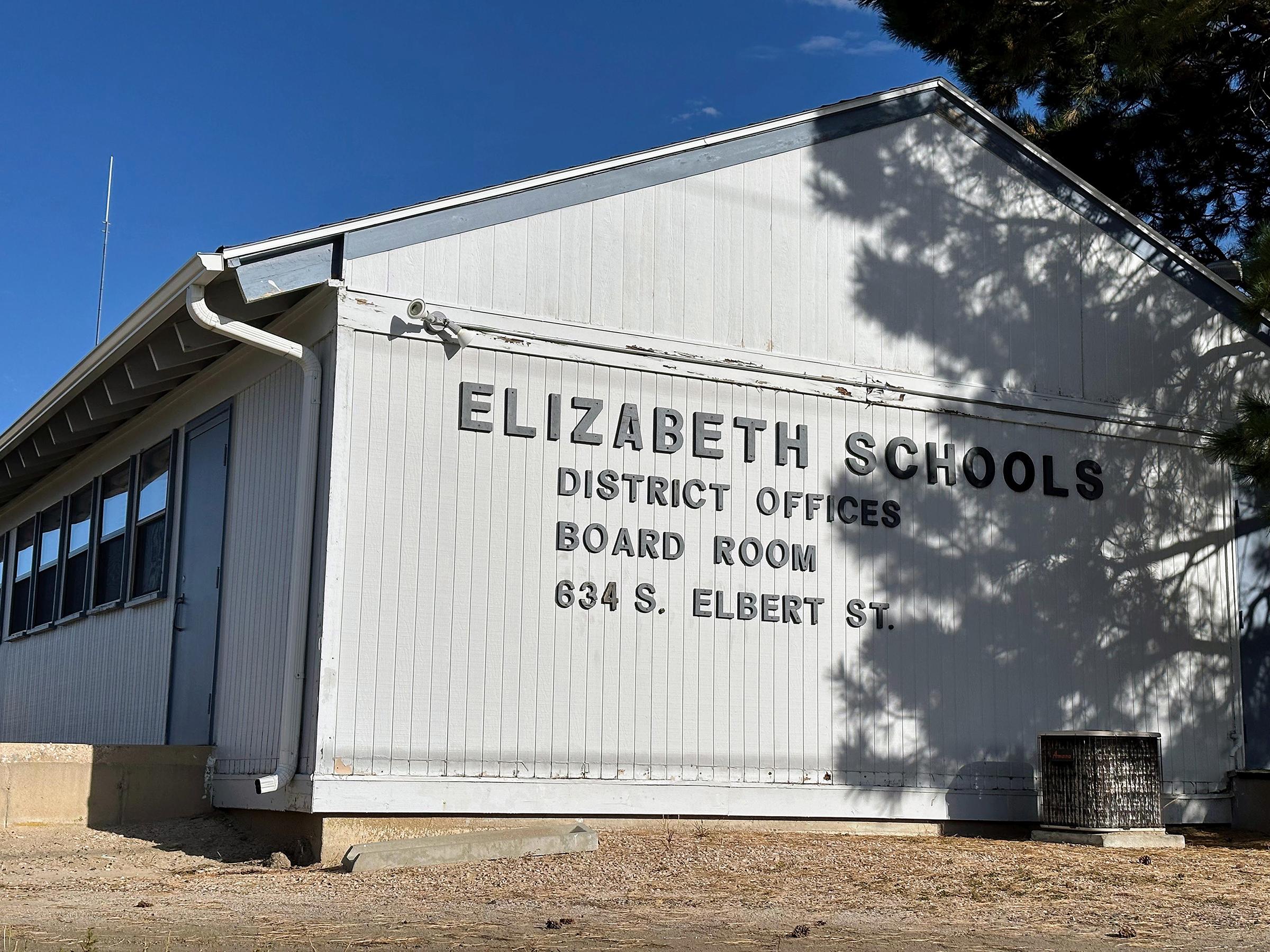
Corey Wise, the former Douglas County School District superintendent who was fired in February, has filed a discrimination and retaliation complaint with federal and state offices against the school district and four board members. The complaint alleges that his termination was unlawful because of his attempts to protect students with disabilities and for his advocacy of the district’s equity policy.
Wise doesn’t contend that he personally was discriminated or retaliated against because of his race, color, religion, sex, national origin or disability, but alleges it was his advocacy on behalf of protected classes such as students with disabilities, youth and staff of color and LGBTQ+ individuals that led to his firing.
“The new Board majority associated Mr. Wise with such protected groups, and unlawfully fired him for that association and advocacy,” states the 33-page charge of discrimination document. It was filed Wednesday with the U.S. Equal Employment Opportunity Commission and the Colorado Civil Rights Division, which has its own anti-discrimination laws and enforcement unit. The document is a procedural step before Wise can file a job discrimination lawsuit.
"Violating my civil rights when I stood up and we stood up for those students who have disabilities, those students are most at risk is not OK," Corey Wise said. "I need to represent myself, my family and what's right."
The respondents named in the discrimination complaint are the district and the four newly elected members of the school board’s conservative majority — Mike Peterson, Becky Myers, Christy Williams and Kaylee Winegar.
It also alleges Wise’s firing was an illegal act of retaliation against what the four perceived as Wise’s opposition to its policy preferences—"but which in fact was Mr. Wise’s legally protected opposition to discrimination, which he in good faith believed was required by state and federal civil rights law.”
The document acknowledges that while school boards and districts are empowered to change curriculum, policies and practices, they shouldn’t cater to the discriminatory preferences and prejudices of others. It said the law prohibits authorities from discriminating or retaliating against an employee “who has engaged in protected activities under federal and state civil rights law, even if board members disagree with those activities.”
"I think anytime you have board majority change, that always goes through your mind of, what are they thinking? They said they were goin to give me a chance," Wise said. He said he took that to heart.
The charge of discrimination asserts that board majority engaged in a pattern of bias and discrimination in their statements against the district’s masking policy, in their request for an overhaul of the district’s equity policy, and in their comments leading up to Wise’s termination.
“Looking to move in a different direction towards a new superintendent”
The discrimination complaint alleges that the firing of Wise, a 26-year veteran who began his career in Douglas County as a student teacher, caused personal harm.
“In the process of doing so, the Individual Respondents admitted that Mr. Wise was a beloved educator and that his termination was ‘without cause,’ ” it stated, which resulted in significant emotional distress for Wise.
“Their callous and intentional conduct has caused pain, suffering, anxiety, and depression to Mr. Wise, and has greatly impacted his personal and familial life,” according to the complaint. It calls Wise’s mid-year termination, which sparked teacher and student walkouts, “sudden, irregular and illegal.”
A district judge has already ruled that the board majority’s private arrangement to oust Wise was in violation of Colorado’s open meetings law.
It describes the 7 a.m. meeting at Fika Coffee House on Friday, Jan. 27 where board president Mike Peterson told Wise that “frankly we are looking to move into a different direction towards a new superintendent,” and confirmed that the four majority directors were committed to the action.
"It was, 'we want you to resign. We want you to resign. We want to know by Tuesday night, effective Wednesday, if you don't, we're prepared to terminate and we feel we will go for cause. And we have a case.' " Wise said. "Short meeting, but very clear, an expectation and ultimatum."
In offering Wise the chance to resign, the complaint states that vice-president Christy Williams said, “We don’t want to make this super public, but we are prepared to do that if that’s the direction in which it has to go. We don’t want that for you because we want you to be able to, if you choose, to find another, you know, find another job. We don’t want this to be super public and have it be horrible.”
Wise said the meeting turned his life upside-down.
Those comments, the document alleges, are evidence of intent to engage in wrongful conduct, as the two leaders tried to hide their decision from the public. When Wise asked why they didn’t want to keep him on, Williams alluded to “a lot of things behind the scenes to work against the four [new board members.]”
Opposition to equity initiatives
The Douglas County School Board in March 2021 approved its first-ever equity policy designed to reduce cases of racism and discrimination in the district. Its roots go back to a previous superintendent, Thomas Tucker, the district's first Black superintendent. A survey of 30,000 teachers, staff, and students revealed, in part, the need for an equity policy based on a lack of diversity in staff and documented instances of racism experienced by students.
The 2021 policy reaffirmed the district’s commitment to inclusion and diversity and required the district to identify and address biased, inequitable, racist or exclusive practices and discriminatory behaviors that impact a particular group based on their collective identity.
School board members at the time said the policy aimed to build more inclusive classrooms and give students, based on their identities like religion, race and disability, the resources they need to succeed. In the predominantly white district, teachers and students of color have complained about racism in schools.
Backers hoped that students and teachers would learn to recognize unconscious biases and to engage in conversations about race and gender equality. Critics voiced concerns that the policy will lead to biased curriculum about white privilege, gender, sexual orientation and liberal ideologies.
On the campaign trail, Peterson, Myers, Williams and Winegar voiced opposition to the district’s equity initiatives, and according to the document, race-based hostilities, and manifested discriminatory “homophobic and transphobic animus on the campaign trail.” The charging document asserts they espoused “hostility and opposition to gender and sexuality ‘constructs,’ ‘critical race theory’ and anti-discrimination efforts aimed at supporting racial minorities more broadly.”
In January, the board passed a resolution requiring Wise to recommend changes to the policy to reflect the new resolution. The charging document notes that the resolution eliminates all mention of diversity and replaces it with language like, “we should promote our common humanity,” and states that any policy that “wrongfully prioritizes group identity over individual beliefs, actions and experiences,” will hinder, not help people.
The resolution made “no effort to identify, address, eliminate, or ameliorate the specific harms of discrimination against students of color which inspired the original Education Equity Policy,” the discrimination complaint states.
In at least one board member’s view, Wise should have taken the initiative to rescind the policy, the document states, and that one rationale for firing him was that he didn’t support the board majority’s agenda regarding the equity policy.
The charging document alleges “the new Board also challenged ongoing internal efforts to ensure unbiased recruiting, hiring, and retention of diverse employees and the district's efforts to ensure pay equity.”
The complaint spends considerable time making the case that the board majority – on the campaign trail, or once in office – “espoused racist views prioritizing white hegemony and exhibiting hostile animus towards youth and staff of color and the history and discrimination they still face.”
Board president Peterson stated that “equality of outcome (equity) is deleterious to preparing our kids to succeed in life,” the document states.
Peterson accused equity consultants hired by the district of defining “ ‘the system’ as racist and ‘White, male, able, Christian, and straight’… set[ting] up the false oppressor/victims paradigm based solely on race and urged collective action against the system.”
The charging document argues that the board members, in their numerous comments attacking “CRT” (critical race theory) and condemning racially conscious staff training, associated Wise with “racial minorities, including students and staff, by virtue of his role in supporting equity across the school district and implementing the Educational Equity Policy and diversity trainings that addressed racism against minorities.”
Opposition to universal masking
The new board majority also campaigned in part on making masks a parent’s choice and opposing universal masking.
In October 2021, the newly formed Douglas County Health Department issued a health order that allowed kids to opt out of wearing masks. The district, meanwhile, argued it could potentially violate federal civil rights law if it enforced the order because it couldn’t give students with disabilities access to district programs and services.
Wise and the district, along with nine other plaintiffs, successfully sued the Douglas County Health Department and board of health. The federal court agreed that the order discriminated against students with disabilities.
“Dissatisfaction with the District’s masking policies, the lawsuit, and with Mr. Wise’s role in both motivated the Board majority to unlawfully terminate Mr. Wise,” the charge states.
It alleges there is direct evidence of retaliation because members of the board’s majority stated their decision to remove Wise was a result of his participation in the lawsuit against the public health order.
What’s next?
The U.S. Equal Employment Opportunity Commission and the Colorado Civil Rights Division will process the charge, request a response from the employer, and investigate. Once Wise is issued a “right to sue” notice, he can proceed with filing a lawsuit against the district.
Read Wise's full complaint:







